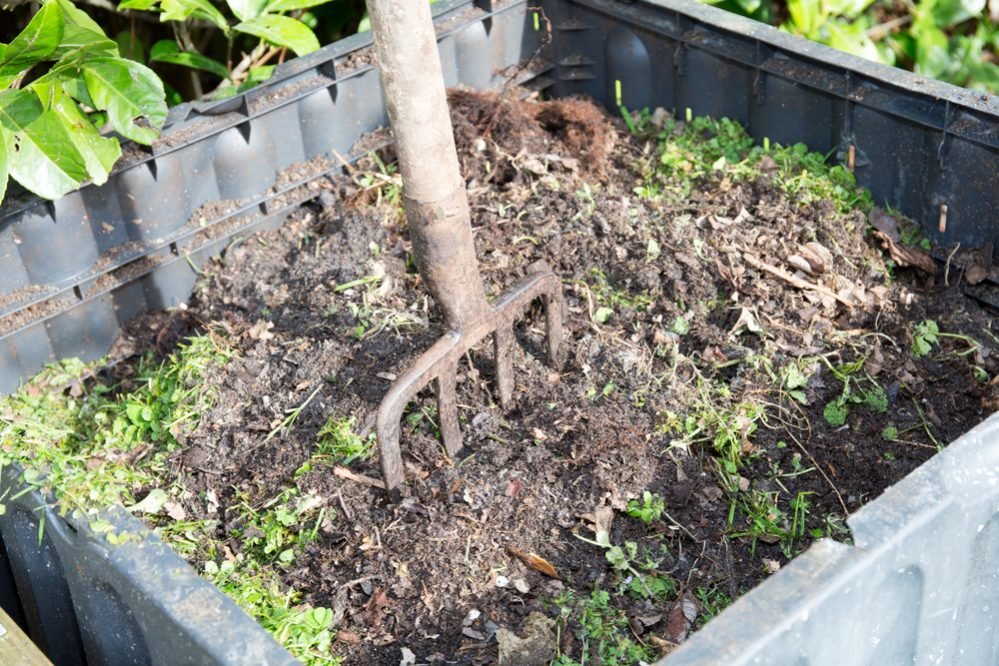Composting is at the heart of the recycling activity which returns fertility to the soil on the allotment and as the season turns, it’s time to turn the compost heaps to mix the contents, check the activity and correct the balance of ‘ingredients ‘. Visitors to our allotment are sometimes surprised at the large quantity of cardboard lying around. Not only is cardboard good as a mulch for suppressing weeds on ground not in use, but when it has done that job it provides a useful source of brown matter – carbon rich, to balance the large amount of green stuff – nitrogen rich, which gets added to the compost heaps during the summer season as vegetable waste and grass clippings are produced in abundance. So the reason for all that cardboard is that you need about 3 parts carbon rich material to 1 part of nitrogen rich stuff! Other carbon- rich options are possible; twigs, sawdust, paper, ash, woodchips…but cardboard is the most easily available. I won’t go as far to say we’ll take all your cardboard but we are always on the lookout for more! Now, back to turning the heaps…if you get the balance right first time and carefully mix those ingredients as they go in, you won’t need to turn the heap to mix it. Realistically that doesn’t happen and in our no-dig, organic allotment where we rely on a large quantity of available compost to add to the beds annually we have to attend to those heaps to make sure everything is going well!

Turning the heaps also has an added advantage – all sorts of things once lost turn up again like vegetable peelers, teaspoons accidentally dropped into the kitchen waste bin months ago!Now we aren’t digging over the allotment each year, the finding of unusual object has diminished considerably. In the past I have found clay pipe stems and bowls, all sorts of bits of broken tools from the past, bolts, bottle tops – one clearly marked “Aylesbury Brewery Company Ltd.”. However it is the unseen detritus from the more recent past which ought to give us all great cause for concern. It was reported in the news today that researchers in China have discovered that micro plastic pollution causes significant damage to populations of soil-dwelling mites, larvae and other tiny creatures which play an essential role in recycling carbon and nitrogen and breaking down organic matter into a form that bacteria can consume. There has not been, to date, nearly enough research on the potential problems with micro plastics – the minute particles produced by the deterioration of oil-based plastic products in the environment – but each study which emerges tells the same story – of an increasing despoliation of God’s creation. By gardening organically, and using as little plastic as possible on the allotment we are only making a gesture; the very minimum to swim against the tide of mass consumption of plastic products which will surely have profound environmental consequences for future generations.